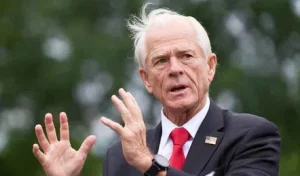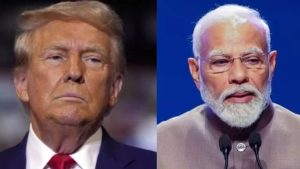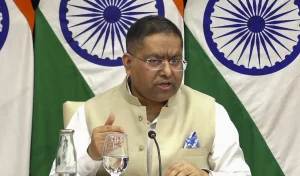New Delhi – India has firmly rejected what it termed “inaccurate and misleading” statements made by White House Trade advisor Peter Navarro regarding the country’s India Russia oil trade policies. External Affairs Ministry spokesperson Randhir Jaiswal delivered a strong response on Friday, categorically dismissing Navarro’s offensive comments about New Delhi’s procurement of Russian crude oil.
“We have seen the inaccurate and misleading statements made by Navarro, and obviously reject them,” Jaiswal stated, marking a significant diplomatic pushback against US criticism of India Russia oil trade arrangements. The rejection comes amid escalating tensions between the two strategic partners over energy procurement policies and broader geopolitical alignments.
Navarro’s Controversial Characterization of Energy Trade

Last week, Peter Navarro launched a scathing attack on India’s energy policies, describing the country as an “oil money laundromat for the Kremlin” in reference to India Russia oil trade relationships. His comments went beyond economic criticism, characterizing India’s continued energy procurement from Moscow as “strategic freeloading.”
Navarro’s criticism expanded beyond energy matters, questioning India’s defense procurement strategies while simultaneously seeking American defense technology transfers. He argued that India’s approach to Russia undermines its credibility as a strategic partner, stating: “If India, the world’s largest democracy, wants to be treated like a strategic partner of the US, it needs to act like one.”
These remarks represent some of the harshest public criticism of India Russia oil trade policies from a senior US administration official, highlighting growing diplomatic tensions between Washington and New Delhi over energy security and geopolitical positioning.
Escalating Tariff Tensions Between Strategic Partners


The diplomatic friction over India Russia oil trade has translated into concrete economic measures, with President Donald Trump implementing substantial tariffs on Indian goods. The United States has doubled tariffs on Indian imports to a significant 50 per cent, representing one of the most severe trade actions in recent bilateral history.
The tariff structure includes a specific 25 per cent additional duty directly targeting India’s purchase of Russian crude oil, demonstrating how India Russia oil trade has become a central point of contention. These punitive measures took effect immediately, with additional levies scheduled for implementation from August 27.
India has characterized the US tariff action as “unfair, unjustified and unreasonable,” expressing bewilderment at being singled out for punitive measures while other major importers of Russian energy face no similar consequences.
India Questions Selective US Enforcement


New Delhi has raised pointed questions about the selective nature of US enforcement regarding India Russia oil trade sanctions. Despite China being the largest importer of Russian crude oil globally, the United States has not imposed any comparable punitive measures on Beijing, creating apparent inconsistency in American policy implementation.
This selective approach has strengthened India’s position that its India Russia oil trade policies are being unfairly targeted, particularly given that other major economies continue similar energy relationships with Russia without facing equivalent penalties from Washington.
National Interest Drives Energy Procurement Decisions
Defending its approach to India Russia oil trade, New Delhi has consistently maintained that energy procurement decisions are driven by national interest and market dynamics rather than geopolitical considerations. This position reflects India’s commitment to energy security and economic pragmatism in international commodity markets.
The Ministry of External Affairs has emphasized that India’s energy procurement policies, including India Russia oil trade arrangements, prioritize the country’s economic interests and energy security requirements above other considerations.
Historical Context and Market Evolution
India’s shift toward increased India Russia oil trade began after Western countries imposed comprehensive sanctions on Moscow following Russia’s invasion of Ukraine in February 2022. As Western nations shunned Russian energy supplies, India seized opportunities to purchase Russian crude oil at significant discounts.
The transformation in India Russia oil trade has been dramatic, with Russia’s share of India’s total oil imports increasing from merely 1.7 per cent in 2019-20 to 35.1 per cent in 2024-25. This remarkable shift has established Russia as India’s biggest oil supplier, fundamentally altering traditional energy supply chains.
Strategic Implications for Bilateral Relations


The controversy surrounding India Russia oil trade reflects broader tensions in US-India strategic partnership. While both countries maintain strong defense and technology cooperation, energy procurement policies have emerged as a significant source of diplomatic friction.
The current dispute over India Russia oil trade demonstrates the complex challenges facing strategic partnerships when national interests diverge on specific policy issues. Both nations must navigate these differences while preserving broader cooperation frameworks.
Future Outlook for Energy Diplomacy
As tensions over India Russia oil trade continue, both countries face the challenge of managing disagreements while maintaining strategic cooperation in other areas. The resolution of current disputes will likely require diplomatic flexibility and recognition of each nation’s core interests in energy security and economic policy.

